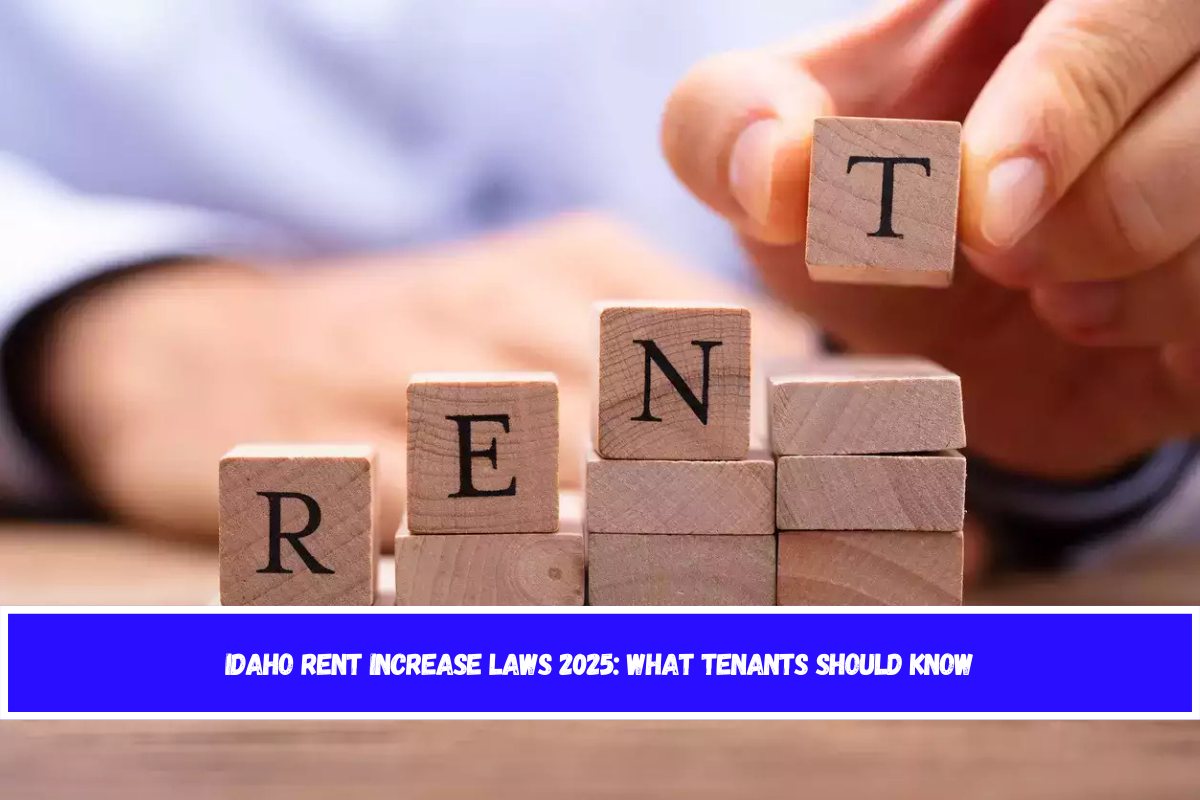Idaho remains a landlord-friendly state in 2025, with minimal restrictions on how much and how often landlords can increase rent. However, tenants do have certain rights regarding notification and protection from unfair practices. Here’s what renters in Idaho should be aware of:
No Statewide Rent Control
- Idaho does not have statewide rent control laws. This means there is no legal cap on how much a landlord can raise the rent for most rental properties.
- Landlords can increase rent to match current market rates when a lease ends or during month-to-month tenancies, provided they follow notice requirements.
- Some cities, such as Boise, have limited rent control ordinances that apply only to specific affordable housing units, often tying increases to the Consumer Price Index. These local rules affect only a small subset of rentals.
Notice Requirements for Rent Increases
- Month-to-Month Leases: Landlords must provide at least 30 days’ written notice before raising the rent.
- Fixed-Term Leases: Rent cannot be increased during the lease term unless the lease specifically allows for it. For renewal, landlords must give 30–60 days’ written notice before the new rent takes effect.
- Written Notice: All rent increase notifications must be in writing. Verbal notice is not sufficient. Notices should specify the new rent amount, the effective date, and any other changes to lease terms.
- Delivery: Notices should be delivered in person or by registered mail. If a tenant refuses to accept the notice, it may be posted on the property.
Limits on Rent Increases
- There is no statewide limit on the amount or frequency of rent increases for most rentals. Landlords can raise rent by any amount, as long as they give proper notice and comply with lease terms.
- For mobile home parks, a 90-day notice is required for rent increases.
- Some local ordinances may restrict increases for certain affordable or subsidized housing, but these are exceptions.
Tenant Protections
- Anti-Discrimination: Rent increases cannot be used to discriminate based on race, religion, national origin, sex, disability, or family status under federal and state fair housing laws.
- Retaliation: Landlords cannot raise rent in retaliation for a tenant exercising legal rights, such as filing a complaint about unsafe conditions.
- Habitability: Landlords remain responsible for maintaining safe and habitable premises regardless of rent increases.
- Lease Terms: Rent cannot be increased during a fixed-term lease unless the lease allows for it.
What Tenants Should Do
- Review Your Lease: Check your lease for any clauses about rent increases and required notice periods.
- Monitor Local Ordinances: Some cities may have extra protections or rules for specific types of housing.
- Document Notices: Keep a record of all written communications from your landlord regarding rent increases.
- Seek Help if Needed: If you suspect a rent increase is discriminatory or retaliatory, or if you did not receive proper notice, contact Idaho Legal Aid or your local housing authority.
Summary Table: Idaho Rent Increase Rules (2025)
| Rule/Requirement | Statewide Law | Local Exceptions (e.g., Boise) |
|---|---|---|
| Rent Control | No | Yes, for some affordable units |
| Notice for Increase | 30 days (month-to-month); 30–60 days (fixed-term renewal) | May vary for subsidized units |
| Limit on Increase Amount | None | CPI-tied for some units |
| Discrimination Ban | Yes | Yes |
| Retaliation Ban | Yes | Yes |
Idaho tenants should be prepared for potentially significant rent increases, especially in competitive markets, and should always ensure they receive proper written notice before any increase takes effect.
Sources:
- https://www.hemlane.com/resources/idaho-rent-control-laws/
- https://www.steadily.com/blog/how-much-can-a-landlord-raise-rent-in-idaho
- https://www.hemlane.com/resources/idaho-tenant-landlord-law/
- https://www.steadily.com/blog/mid-term-rental-laws-regulations-idaho
- https://www.doorloop.com/laws/idaho-landlord-tenant-rights
- https://legislature.idaho.gov/statutesrules/idstat/title55/t55ch3/sect55-307/















